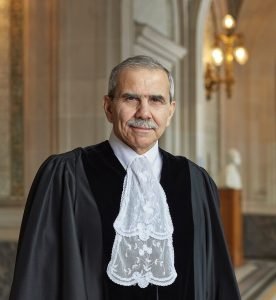Refugees vs Economic Migrants
A refugee is defined as someone who is forced to flee his or her country due to a well-founded fear of persecution for reasons of race, religion, nationality, political opinion or membership in a particular social group.
People may also choose to flee their home country to escape poverty or to seek increased security or education. People doing this would be called economically motivated migrants. While governments have an obligation to shelter refugees, there is no obligation to accept or shelter migrants.
Since economic migrants know their desired host country would under ordinary circumstances be unwilling to accept them, they often present themselves as refugees. They falsely claim torture, beatings, rape, or other persecution back home, knowing it is extremely difficult for immigration officials to verify such events in a faraway place.
Even when all facts are clear, the distinction between a migrant and legitimate refugee can be very blurry. Consider this example, brought by Jørgen Carling in a blog post:
The ‘two kinds of people (economic migrants and refugees)’ argument is further undermined by the drawn-out trajectories of many current migrants. A Nigerian arriving in Italy might have left Nigeria for reasons other than a fear of persecution, but ended up fleeing extreme danger in Libya. Conversely, a Syrian might have crossed into Jordan and found safety from the war, but been prompted by the bleak prospects of indeterminate camp life to make the onward journey to Europe. Regardless of the legal status that each one obtains in Europe, they are both migrants who have made difficult decisions, who deserve our compassion, and whose rights need to be ensured.
If the economic hardship a person is fleeing from is sufficiently severe, does it really matter that they don’t meet the technical definition of a refugee? Then again, absorbing refugees is tremendously difficult and expensive for host countries. Accepting even just people fleeing well documented persecution may be a politically unpopular burden. Not applying strict requirements may lead countries to refuse to accept any refugees at all.
Migrants vs. Refugees in Europe
How Refugees and Migrants Mix
A brief report from the United Nations High Commission for Refugees explaining how economic migrants, refugees, and others mix together attempting to reach Europe.
How Europeans Distinguish
Several news articles detailing how European countries are increasingly attempting to distinguish between refugees and economic migrants to stem the flow of people crossing the Mediterranean to the continent.
Refugee Detectives
‘The Refugee Detectives’- an article in the Atlantic Magazine explaining how German immigration authorites use technology and detective work to distinguish economic migrants from refugees.
In the United States
Caravans of people fleeing Central America through Mexico arrive at the U.S. border. The Trump administration accuses them of being economic migrants attempting to get around immigration law. An articel in the New Republic examining this controversy and the difficulties with categorizing these people.
Difference Between Economic Migrants and Refugees
A scholarly analysis of the differnces between economic migrants and refugees and the difficulty of distinguishing between the two from the Harvard Humanitarian Initiative.
Opinion
‘To help real refugees, be firm with economic migrants’ an opinion piece by Nick Cohen in The Guardian.
Human Rights Haggadah Blog

The Real Human Rights Violation Is Not Offering Gazans a Choice
By now most of us are familiar with Trump’s stunning comments about relocating the current population from Gaza and rebuilding it as ‘The Riviera

Condemn Israel, Starve Miners: South Africa Makes a Mockery of Human Rights
According to the Talmud, Rabban Gamliel banned from the study hall any student whose deeds were not in keeping with their values (Brachot 28a). This

Hostage Agreement Says Human Rights Are Dirt
While I of course share in the joy at the return of the first three hostages, I’m also saddened because the agreement that freed them

Judge Rules Against Israel One Day, Becomes Prime Minister of Lebanon the Next
Of course the ceasefire deal is the main topic currently in the news, but the abrupt resignation of ICJ President Nawaf Salam to become Prime
